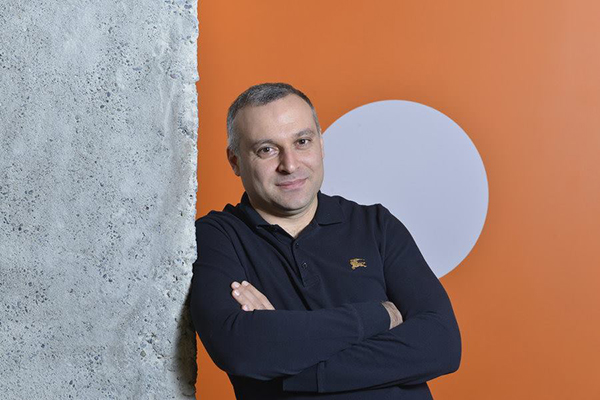
At the Innovate Armenia event hosted by the USC Dornsife Institute of Armenian Studies on Feb. 21, a team of software engineers from Armenia, headed by Varham Martirosian, presented a mobile phone application that wowed the audience, Asbarez reports.
The app, called “Zangi,” aims to provide a communication service similar to Skype and Viber, but, its developers insist, with better, more convenient services than their current leading competitors. The figures seem to suggest that users agree on the app’s merits; Zangi is the number one downloaded app in its category in Armenia with 150,000 users, beating out Skype, Viber, Tango and a number of others. The social media app is picking up ground abroad, too, with about 1,000 users in the United States, according to its developers.
Much like Viber, Zangi allows users to make voice and video calls over an Internet connection, for free. The app offers additional features like instant messaging and can even make calls when one or both parties lack an internet connection or when the party receiving a call does not have the Zangi app, although fees will apply in those cases.
One of the advantages Zangi boasts over its competitors is its ability to provide clear audio and video calls even under weak Internet connectivity. The app is also designed to have as small an impact on mobile phone resources as possible in order to be smoothly operable on less powerful phones. The Zangi developers pride themselves on creating an app that is as accessible as possible by people around the world. “I can name tens of different apps, but the services and ease of use that Zangi provides is unique,” founder and chief engineer Varham Martirosian told me while he visited the Asbarez and Horizon offices in Los Angeles on Tuesday.
Martirosian said he and his team faced their share of immense challenges during the development of the app. In fact, he said, they started their development process at about the same time as the teams behind Skype and Viber started theirs, but with far fewer resources.
“Our challenges working out of Armenia were unique,” Martirosian said. “In some aspects, we had advantages in Armenia. Unlike in the United States, for example, organizing, gathering a team, was easy in Armenia when we started. Five years ago it was very easy to gather a team of software engineers for a project – although today it’s not as easy. But our disadvantages were mainly in things like accessing the necessary financial instruments to get momentum behind the project.”
“I’ve been working in IT for the last fifteen years in Armenia and the rate of integration and advancement has been extremely rapid. Part of the issue today is that there is a lot more demand for engineers in Armenia, with many more start-ups and a huge influx of outsourced orders from abroad coming into Armenia. The other issue is that there is significant ‘brain drain’ in Armenia – the people with the very high skills needed for high quality projects tend to leave the country to go work abroad where there are more lucrative offers. This is a problem,” Martirosian said.
Martirosian said there is so much demand for software development in Armenia, particularly in the mobile app sector, that firms are having trouble fulfilling all of the orders coming in.
At USC’s Innovate Armenia event, the former Vice President of Twitter Raffi Krikorian said, “There’s an ember in Armenia [referring to the IT industry], and we need to figure out how to throw gasoline on that fire.”
“I like to use a different analogy,” Martirosian said. “I compare the IT industry in Armenia to a pearl. Right now, there is a grain of sand and we need to cultivate it and nurture it so it can become a big pearl.
“What we need in Armenia is not help, but investment. We don’t need help. We have world class engineers and technology. We need investment to bring meaningful change.
“We can present our success to Armenians to motivate the growth of this sector. People in Armenia always hear about some start-up firm or another overseas that had great success. In Armenia that seems like a very distant prospect to people; but we need to break that myth and show everyone that this is possible in Armenia — very possible. What we need for this is investment, a lot of investment. We see that the diaspora helps Armenia, but we need investment for Armenia to become economically successful in this sector.”
The app is available as a free download on the Apple App Store and on Google Play, for iOS and Android phones respectively. The developers say they are working on releasing a desktop PC and Mac version of Zangi soon.








